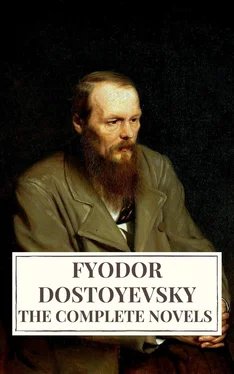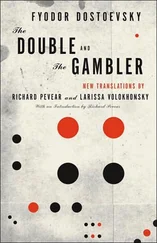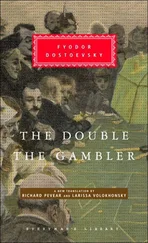Fyodor Dostoevsky - The Complete Novels of Fyodor Dostoyevsky
Здесь есть возможность читать онлайн «Fyodor Dostoevsky - The Complete Novels of Fyodor Dostoyevsky» — ознакомительный отрывок электронной книги совершенно бесплатно, а после прочтения отрывка купить полную версию. В некоторых случаях можно слушать аудио, скачать через торрент в формате fb2 и присутствует краткое содержание. Жанр: unrecognised, на английском языке. Описание произведения, (предисловие) а так же отзывы посетителей доступны на портале библиотеки ЛибКат.
- Название:The Complete Novels of Fyodor Dostoyevsky
- Автор:
- Жанр:
- Год:неизвестен
- ISBN:нет данных
- Рейтинг книги:5 / 5. Голосов: 1
-
Избранное:Добавить в избранное
- Отзывы:
-
Ваша оценка:
- 100
- 1
- 2
- 3
- 4
- 5
The Complete Novels of Fyodor Dostoyevsky: краткое содержание, описание и аннотация
Предлагаем к чтению аннотацию, описание, краткое содержание или предисловие (зависит от того, что написал сам автор книги «The Complete Novels of Fyodor Dostoyevsky»). Если вы не нашли необходимую информацию о книге — напишите в комментариях, мы постараемся отыскать её.
Poor Folk
The Double
Notes From The Underground
Crime and Punishment
The Gambler
The Idiot
The Possessed (The Devils)
A Raw Youth
The Dream of a Ridiculous Man
The Brothers Karamazov
The Complete Novels of Fyodor Dostoyevsky — читать онлайн ознакомительный отрывок
Ниже представлен текст книги, разбитый по страницам. Система сохранения места последней прочитанной страницы, позволяет с удобством читать онлайн бесплатно книгу «The Complete Novels of Fyodor Dostoyevsky», без необходимости каждый раз заново искать на чём Вы остановились. Поставьте закладку, и сможете в любой момент перейти на страницу, на которой закончили чтение.
Интервал:
Закладка:
Raskolnikov put down his cap and continued listening in silence with a serious frowning face to the vague and empty chatter of Porfiry Petrovitch. "Does he really want to distract my attention with his silly babble?"
"I can't offer you coffee here; but why not spend five minutes with a friend?" Porfiry pattered on, "and you know all these official duties … please don't mind my running up and down, excuse it, my dear fellow, I am very much afraid of offending you, but exercise is absolutely indispensable for me. I'm always sitting and so glad to be moving about for five minutes … I suffer from my sedentary life … I always intend to join a gymnasium; they say that officials of all ranks, even Privy Councillors, may be seen skipping gaily there; there you have it, modern science … yes, yes… . But as for my duties here, inquiries and all such formalities … you mentioned inquiries yourself just now … I assure you these interrogations are sometimes more embarrassing for the interrogator than for the interrogated… . You made the observation yourself just now very aptly and wittily." (Raskolnikov had made no observation of the kind.) "One gets into a muddle! A regular muddle! One keeps harping on the same note, like a drum! There is to be a reform and we shall be called by a different name, at least, he-he-he! And as for our legal tradition, as you so wittily called it, I thoroughly agree with you. Every prisoner on trial, even the rudest peasant, knows that they begin by disarming him with irrelevant questions (as you so happily put it) and then deal him a knock-down blow, he-he-he!—your felicitous comparison, he-he! So you really imagined that I meant by 'government quarters' … he-he! You are an ironical person. Come. I won't go on! Ah, by the way, yes! One word leads to another. You spoke of formality just now, apropos of the inquiry, you know. But what's the use of formality? In many cases it's nonsense. Sometimes one has a friendly chat and gets a good deal more out of it. One can always fall back on formality, allow me to assure you. And after all, what does it amount to? An examining lawyer cannot be bounded by formality at every step. The work of investigation is, so to speak, a free art in its own way, he-he-he!"
Porfiry Petrovitch took breath a moment. He had simply babbled on uttering empty phrases, letting slip a few enigmatic words and again reverting to incoherence. He was almost running about the room, moving his fat little legs quicker and quicker, looking at the ground, with his right hand behind his back, while with his left making gesticulations that were extraordinarily incongruous with his words. Raskolnikov suddenly noticed that as he ran about the room he seemed twice to stop for a moment near the door, as though he were listening.
"Is he expecting anything?"
"You are certainly quite right about it," Porfiry began gaily, looking with extraordinary simplicity at Raskolnikov (which startled him and instantly put him on his guard); "certainly quite right in laughing so wittily at our legal forms, he-he! Some of these elaborate psychological methods are exceedingly ridiculous and perhaps useless, if one adheres too closely to the forms. Yes … I am talking of forms again. Well, if I recognise, or more strictly speaking, if I suspect someone or other to be a criminal in any case entrusted to me … you're reading for the law, of course, Rodion Romanovitch?"
"Yes, I was … "
"Well, then it is a precedent for you for the future—though don't suppose I should venture to instruct you after the articles you publish about crime! No, I simply make bold to state it by way of fact, if I took this man or that for a criminal, why, I ask, should I worry him prematurely, even though I had evidence against him? In one case I may be bound, for instance, to arrest a man at once, but another may be in quite a different position, you know, so why shouldn't I let him walk about the town a bit? he-he-he! But I see you don't quite understand, so I'll give you a clearer example. If I put him in prison too soon, I may very likely give him, so to speak, moral support, he-he! You're laughing?"
Raskolnikov had no idea of laughing. He was sitting with compressed lips, his feverish eyes fixed on Porfiry Petrovitch's.
"Yet that is the case, with some types especially, for men are so different. You say 'evidence'. Well, there may be evidence. But evidence, you know, can generally be taken two ways. I am an examining lawyer and a weak man, I confess it. I should like to make a proof, so to say, mathematically clear. I should like to make a chain of evidence such as twice two are four, it ought to be a direct, irrefutable proof! And if I shut him up too soon—even though I might be convinced he was the man, I should very likely be depriving myself of the means of getting further evidence against him. And how? By giving him, so to speak, a definite position, I shall put him out of suspense and set his mind at rest, so that he will retreat into his shell. They say that at Sevastopol, soon after Alma, the clever people were in a terrible fright that the enemy would attack openly and take Sevastopol at once. But when they saw that the enemy preferred a regular siege, they were delighted, I am told and reassured, for the thing would drag on for two months at least. You're laughing, you don't believe me again? Of course, you're right, too. You're right, you're right. These are special cases, I admit. But you must observe this, my dear Rodion Romanovitch, the general case, the case for which all legal forms and rules are intended, for which they are calculated and laid down in books, does not exist at all, for the reason that every case, every crime, for instance, so soon as it actually occurs, at once becomes a thoroughly special case and sometimes a case unlike any that's gone before. Very comic cases of that sort sometimes occur. If I leave one man quite alone, if I don't touch him and don't worry him, but let him know or at least suspect every moment that I know all about it and am watching him day and night, and if he is in continual suspicion and terror, he'll be bound to lose his head. He'll come of himself, or maybe do something which will make it as plain as twice two are four—it's delightful. It may be so with a simple peasant, but with one of our sort, an intelligent man cultivated on a certain side, it's a dead certainty. For, my dear fellow, it's a very important matter to know on what side a man is cultivated. And then there are nerves, there are nerves, you have overlooked them! Why, they are all sick, nervous and irritable! … And then how they all suffer from spleen! That I assure you is a regular gold-mine for us. And it's no anxiety to me, his running about the town free! Let him, let him walk about for a bit! I know well enough that I've caught him and that he won't escape me. Where could he escape to, he-he? Abroad, perhaps? A Pole will escape abroad, but not here, especially as I am watching and have taken measures. Will he escape into the depths of the country perhaps? But you know, peasants live there, real rude Russian peasants. A modern cultivated man would prefer prison to living with such strangers as our peasants. He-he! But that's all nonsense, and on the surface. It's not merely that he has nowhere to run to, he is psychologically unable to escape me, he-he! What an expression! Through a law of nature he can't escape me if he had anywhere to go. Have you seen a butterfly round a candle? That's how he will keep circling and circling round me. Freedom will lose its attractions. He'll begin to brood, he'll weave a tangle round himself, he'll worry himself to death! What's more he will provide me with a mathematical proof—if I only give him long enough interval… . And he'll keep circling round me, getting nearer and nearer and then—flop! He'll fly straight into my mouth and I'll swallow him, and that will be very amusing, he-he-he! You don't believe me?"
Читать дальшеИнтервал:
Закладка:
Похожие книги на «The Complete Novels of Fyodor Dostoyevsky»
Представляем Вашему вниманию похожие книги на «The Complete Novels of Fyodor Dostoyevsky» списком для выбора. Мы отобрали схожую по названию и смыслу литературу в надежде предоставить читателям больше вариантов отыскать новые, интересные, ещё непрочитанные произведения.
Обсуждение, отзывы о книге «The Complete Novels of Fyodor Dostoyevsky» и просто собственные мнения читателей. Оставьте ваши комментарии, напишите, что Вы думаете о произведении, его смысле или главных героях. Укажите что конкретно понравилось, а что нет, и почему Вы так считаете.












